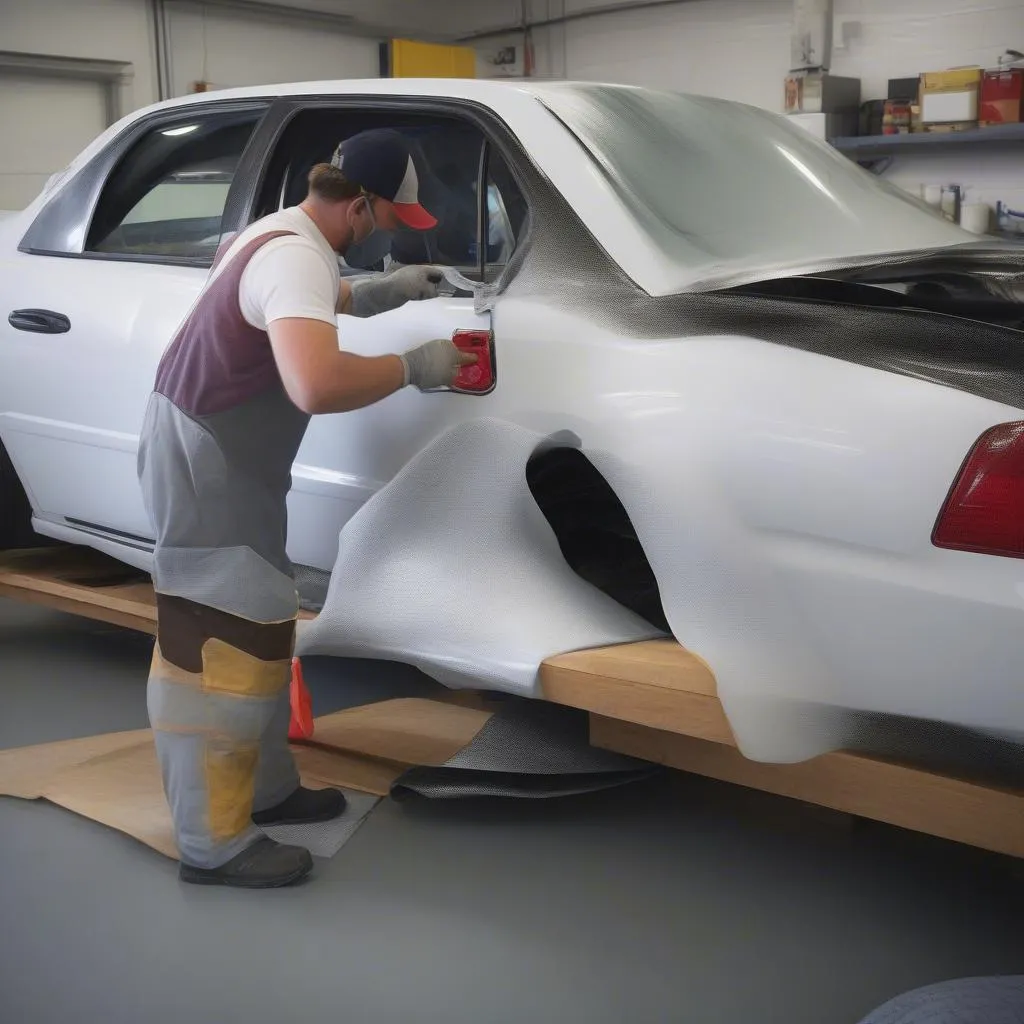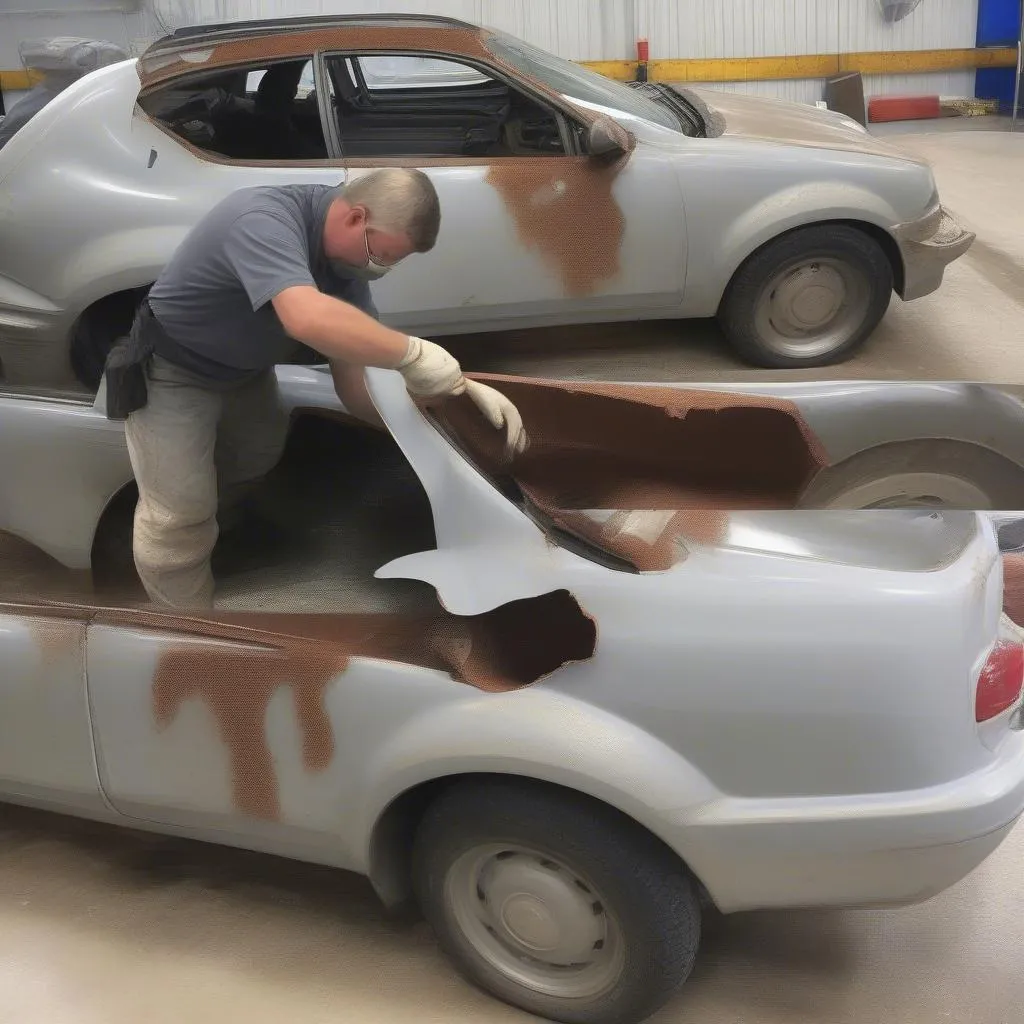Imagine you’re driving down a sunny California highway in your classic Ford Mustang, the wind whipping through your hair. Suddenly, a rogue pebble flies up, leaving a nasty dent in your pristine fiberglass hood. Now you’re faced with a choice: live with the imperfection or repair it. This is where fiberglass sheets come in.
What are Fiberglass Sheets?
Fiberglass sheets, also known as fiberglass mat or chopped strand mat (CSM), are a versatile material used in various applications, including automotive repair. They’re made from thin strands of glass fibers woven together, creating a flexible and lightweight material that can be easily shaped and molded.
The Importance of Fiberglass Sheets For Cars
From a mechanic’s perspective: Fiberglass sheets are essential for repairing various body damage on cars. They provide a durable and lightweight solution for filling gaps, patching holes, and rebuilding damaged areas. This is especially true for older cars where metal body panels may be rusted or damaged.
From an engineering standpoint: Fiberglass sheets offer excellent strength-to-weight ratio. They can withstand significant stress and impact while remaining lightweight, which is crucial for maintaining optimal vehicle performance.
From an economic perspective: Fiberglass sheets offer an economical alternative to replacing entire body panels. They are relatively inexpensive and easy to work with, allowing for cost-effective repairs.
How Fiberglass Sheets are Used for Car Repairs
1. Body Panel Repair
 Fiberglass sheets being used to repair a damaged car body panel
Fiberglass sheets being used to repair a damaged car body panel
Fiberglass sheets are used to repair damaged body panels such as doors, fenders, hoods, and roofs. They are applied over a layer of resin, which acts as a bonding agent and helps to shape the material.
2. Filling Gaps and Holes
 Fiberglass sheets being used to fill gaps and holes in a car body
Fiberglass sheets being used to fill gaps and holes in a car body
For larger gaps and holes, fiberglass sheets can be layered and shaped to create a solid and seamless repair. This technique is often used to repair rust damage, dents, and other structural defects.
3. Creating Custom Body Panels
Fiberglass sheets can also be used to create custom body panels for unique car designs. This involves molding and shaping the fiberglass sheets over a template or a master model.
Frequently Asked Questions
Q1: What are the benefits of using fiberglass sheets for car repairs?
A: Fiberglass sheets offer several benefits, including durability, lightweight construction, ease of use, cost-effectiveness, and adaptability for various repair applications.
Q2: How do I apply fiberglass sheets to a car?
A: Applying fiberglass sheets requires specific steps, including prepping the surface, applying resin, laying down fiberglass sheets, and smoothing out the repair. For detailed instructions, refer to the specific fiberglass product instructions and seek guidance from a qualified mechanic or automotive professional.
Q3: What are some common types of fiberglass sheets used for cars?
A: Common types include chopped strand mat (CSM), woven roving mat, and surface veil mat. Each type has specific properties and applications, so choosing the right type is essential for achieving the desired result.
Q4: Where can I purchase fiberglass sheets for car repairs?
A: You can find fiberglass sheets at various automotive supply stores, online retailers, or specialized fiberglass shops.
Conclusion
Fiberglass sheets are a versatile and cost-effective solution for repairing car body damage. Whether it’s fixing a small dent, filling a hole, or creating a custom body panel, fiberglass sheets offer a durable and lightweight alternative to replacing entire body panels.
To ensure proper installation and optimal results, it’s always recommended to seek professional assistance from a qualified mechanic or body shop.
Need help with car repairs? Contact us via Whatsapp at +84767531508 for expert advice and support.